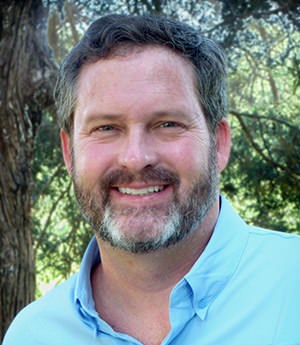 John Hunt, MD, is an author, an entrepreneur, and a physician who refuses to practice medicine in the United States. He is also, as you will soon see, an ardent individualist.
John Hunt, MD, is an author, an entrepreneur, and a physician who refuses to practice medicine in the United States. He is also, as you will soon see, an ardent individualist.
He is the author of two novels, Higher Cause and Assume the Physician, and is currently collaborating with famed speculator and New York Times bestselling author Doug Casey on a series of politically incorrect adventure novels. His most recent book is nonfiction: Your Child’s Asthma: A Guide for Parents.
Dr. Hunt is a fellow of the American Academy of Allergy Asthma and Immunology and both a pediatric pulmonologist and an allergist/immunologist. He is cofounder of Trusted Angels Foundation, which works in West Africa to enhance health care, education and entrepreneurial undertakings.
The Freeman: You put in a lot of years to become a medical specialist. Why did you quit?
Hunt: Yes, after 27 years of education, I quit the practice of medicine in the US because, well, the system is so profoundly broken and immoral now that I had to pay heed to brilliant modern philosopher Paul Rosenberg, who recently modified the quote attributed to Edmund Burke. Rosenberg says, “The only thing necessary for evil to succeed is for good men to obey.”
So I stopped obeying.
The Freeman: But you still practice outside the United States?
Hunt: I needed to do something with those decades of education. I’m a doctor through and through, and just because the cronies in the USA subsidized this foolish system of health insurance — and Obama made the foolishness compulsory and therefore immoral — doesn’t take away the fact that I’m a doctor and love being one.
Health care is supposed to be entirely individualized!
In Liberia, patients come to you with their medical record in hand. What a concept: individual responsibility! There is no need for electronic medical records and all their hassles. There are very few doctors in Liberia, so health care is truly valued as somewhat more than an oil change, and that is rather nice, actually.
The Freeman: Liberia is where you started a nonprofit. Please tell us about that.
Hunt: Trusted Angels Foundation, which I cofounded with artist Kimberly Johnson, focuses on education and health care arbitrage, moving resources from where they are undervalued — as in the US, where physicians are now indentured servants — to where they are better valued.
The national motto of Liberia is “The Love of Liberty Brought Us Here.” It brought me to Liberia as well.
The Freeman: What is the connection between individualism and the practice of medicine?
Hunt: There is a small but growing concept in medicine now called “personalized care” focused on individualization of health care. Now, please spend a moment to be shocked that there needs to be a movement that is focused on individualization of health care.
Health care is supposed to be entirely individualized! But there needs to be a movement to fight against the collectivist perversion of evidence-based medicine. Patients are individual human beings with an array of millions of measurable and unmeasurable health-related variables that can never be represented by the average of a statistical data set. For this reason and many, many others, medicine is an art. Aspirations of treating medicine as a science are fine to have, but only if those who aspire to do so don’t try to accomplish their goal by banning or inhibiting the art. The art is the reality, and the science is the fiction.
The Freeman: What is evidence-based medicine?
Hunt: EBM was initially developed in Canada and is focused on using group statistics to identify whether something in medicine is effective or not. And it was created for a good purpose: to help obviate anecdotal medicine, in which a doctor has success one time with a therapy in a patient and subsequently applies that therapy thoughtlessly and lazily to every other patient who walks through the door with that problem.
EBM was originally focused on taking the best available evidence and using it to help advise the management of individual patients. But over time, the EBM advocates — who were made ill as a result of the collectivist contagion — dropped the individual part of EBM. So it turns out that now both EBM and anecdotal medicine are forms of collectivist groupthink. Whereas in anecdotal medicine, individual differences are ignored because of physician laziness, in EBM, individual differences are subsumed by group data, and thereby also ignored.
The Freeman: So you consider EBM dangerous?
Hunt: Yes, in part because it is now compulsory. And the danger goes beyond the doctor’s office.
Insurance companies twist irrelevant EBM reports to justify defiance of their contractual duty to their subscribers.
What we need is to go back to honest, nongroupthinky individualization of health care.
Pharmaceutical companies know how to lie by using EBM to make people believe that a drug works for everyone with a particular disease, when it really only works in 7 percent of the people with that disease. They expand their market with fraudulent use of statistics.
What we need is to go back to honest, nongroupthinky individualization of health care. EBM needs the collectivist cancer resected from itself.
The Freeman: Do you consider most doctors to be collectivists?
Hunt: About 40 percent of doctors define themselves as socially liberal and economically conservative, suggesting that those with some libertarian leanings actually concentrate in the medical profession, which is encouraging. But doctors aren’t immune to having internal contradictions. A doctor, as is true for people in other professions, can have a collectivist notion in one area and an individualist notion in another.
The Freeman: Other than EBM, what are some of the collectivist notions in modern medicine?
Hunt: One sign of collectivism in medicine is the expansion of the concept of public health. Public health can be reasonably considered to involve contagious diseases that spread through the population in normal day-to-day commerce. But the collectivists have expanded the concept dangerously.
Now, obesity is considered a public health epidemic, as is hypercholesterolemia. Heart disease, asthma, and diabetes are considered public health diseases now. Teenage pregnancy, depression, and melanoma are “epidemic.” Those are all deceptions. These aren’t public at all. They are all private individual health matters.
The use of the term “public health” for private diseases results from the collectivist contagion: the mindset that people are human resources to be kept fed and fit to optimally serve the public good — meaning the politicians and their crony buddies. As Doug Casey would say, we are supposed to be milk cows … until they decide they need beef.
The Freeman: Collectivist contagion, you say?
Hunt: The collectivist contagion is a fanciful hypothesis Doug and I came up with while writing our series of novels together. In medicine, the infectious agents, from large to small, include parasites, fungi, bacteria, viruses, and the tiny prions — the small polypeptide fragments responsible for mad cow disease and possibly some of Alzheimer’s.
But smaller even than prions are ideas. No one doubts that ideas change neuronal connections and biochemical activities. Ideas certainly alter our brain function and affect our hormones. Think what happens to your adrenal glands when you hear politicians speak!
Although ideas can be passed from one host to another without direct contact, they, like infectious diseases, spread fastest when lots of people are together, such as at political rallies or where concepts go viral in crowded online communities.
When an idea is evil or destructive, it should be considered a contagious disease. Collectivism is an outright epidemic now, and comes in several different strains infecting both major political parties. Talk about a public health disaster! It’s a zombie apocalypse.
The Freeman: So you honestly consider collectivism a disease?
Hunt: Yes, and for good reason. Depression is a disease, as are psychosis and alcoholism. Collectivism makes everybody sick. The concept of collectivism as a cancer is one apt disease analogy. A cancer cell invades the innocent tissue that surrounds it, forces its way through, stealing resources from other cells. Cancer kills the host, the same way collectivism kills the host. Most importantly, cancer avoids the host’s immune system. It lies to the host to make the host believe it is not dangerous. That’s collectivism’s modus operandi: deception.
When an idea is evil or destructive, it should be considered a contagious disease.
The Freeman: There probably aren’t too many MDs out there who would agree with this assessment.
Hunt: I doubt many have had the time or energy to think about it much. Doctors are kept very busy.
The Freeman: You are on the medical board of a health care-sharing ministry. Can you summarize what that’s all about and help our readers consider whether such an alternative may be right for them?
Hunt: Sure. Liberty HealthShare. Members of health care-sharing ministries — those that existed or had their predecessors extant before January 1, 2000 — are excepted from the Obamacare tax or fee or penalty or whatever that is imposed for not having health insurance. These ministries are religious based and have their roots in the Christian tradition of voluntary sharing. The ACA definition of a health care-sharing ministry includes having members with “common ethical or religious beliefs.”
Compared to insurance, health care sharing is a more honorable method of protecting one’s finances from the assault of the out-of-control price hyperinflation caused by the medical-insurance-government complex.
The Freeman: Why is it more honorable?
Hunt: Health care sharing is cooperation instead of compulsion. It is not insurance. It is not contractual. It is based on trust and compassion and protected by religious freedom from the attacks of progressive insurance regulators seeking to enlarge their fiefdom. There are several of these ministries and some are branching out now. All are growing, exponentially, as people wake up to the destructive boondoggle of the health insurance paradigm and try to avoid it in whatever way the government overlords still allow us to.
The Freeman: What would you want to see happen to fix our health care system in the United States?
Hunt: One word: freedom.
More specifically, get the national government out of the way, entirely and completely. Castrate the FDA, and phase out Medicare. Leave Medicaid entirely to the states to experiment with. Abolish the ACA. End the tax-preferred treatment of health insurance at all levels. Never allow the national government to ever say anything about individual health care again. Get a constitutional amendment to allow for the Center for Disease Control to exist, and then make sure the CDC only deals with infectious and environmental diseases — those are the only true public health diseases.
The Freeman: You now spend most of your time writing books. Why is that your focus?
Hunt: Other people blow off steam on blog posts and Facebook, and by blowing it off, prevent the pressure from building. I don’t want to blow off steam. Instead, I want to stoke the fires and explode the boiler that the collectivist-infected people have built. You know, the one that is cooking us all to death. It’s more important than ever to write about good and evil.
The Freeman: What is your definition of good and evil?
Hunt: My recent writing efforts highlight what evil is, and who evil is, and contrast it with good. Doing what you say you are going to do (keeping your word) is good. As long as what you say you are going to do never encroaches on others or their property. Abidance by the nonaggression principle is good. Initiation of force and fraud is evil.
It’s more important than ever to write about good and evil.
Libertarians, by living an ideology that is inherently good and inherently consistent with natural law, are the protagonists, the good guys, in all my narratives. The cosmic war between good and evil is essentially a war between libertarians and sociopaths, with collectivist ideology fully allied with the sociopaths. By the way, the newspeak academic term for sociopath is the wimpy “anti-social personality disorder," a phrase that the collectivists have recently started twisting around so as to apply it to anyone who disagrees with them.
We need to disempower sociopaths, and seek a cure for the disease of collectivism. As a doctor, I swore an oath to try to cure people of disease. I still put my focus on that task.
The Freeman: Dr. Hunt, thank you for talking with us.

